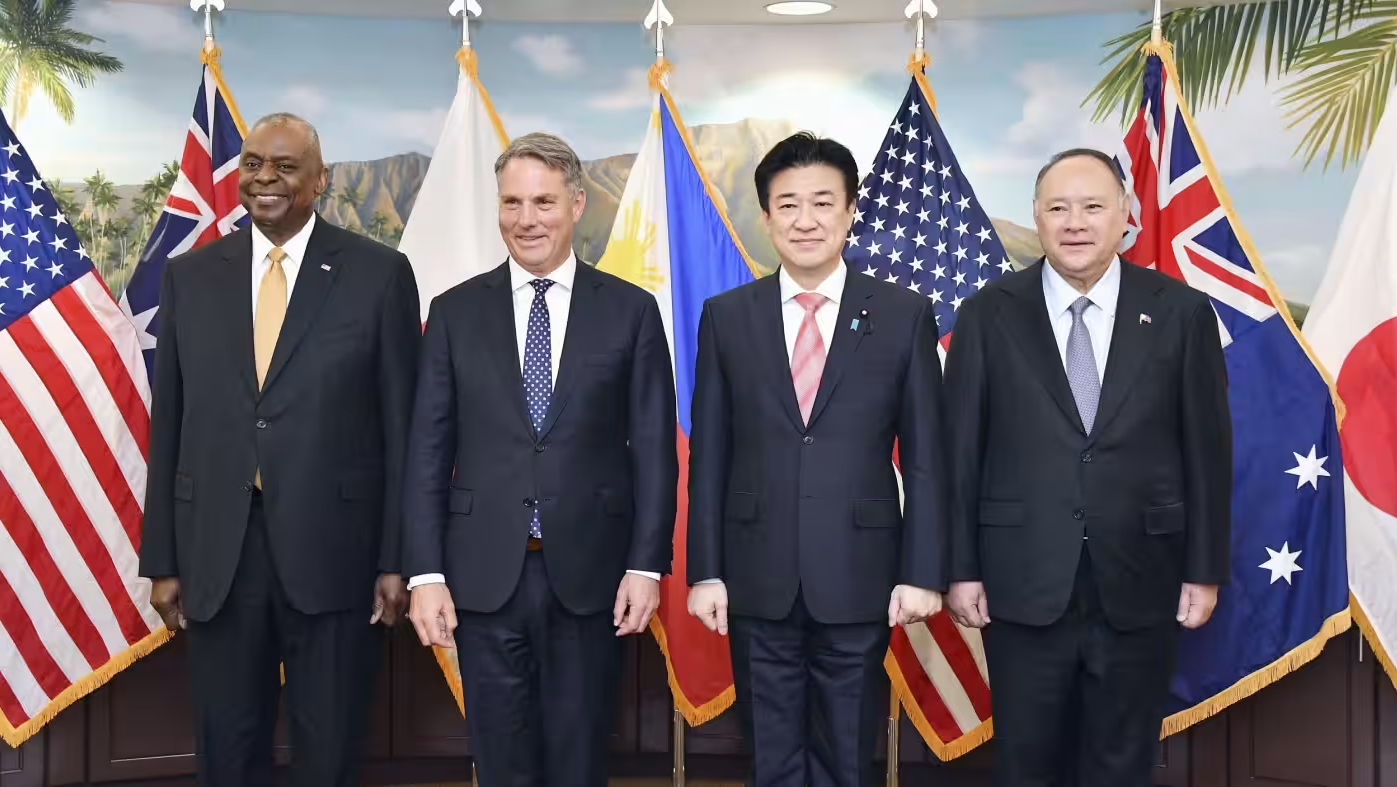
Richard Javad Heydarian, Professorial Chairholder in Geopolitics, Polytechnic University of the Philippines
May 24, 2024
Amid a shifting foreign policy in the Philippines under President Ferdinand Marcos Jr., maritime tensions in the South China Sea have escalated, prompting the Philippines to join the newly-formed Quadrilateral security grouping, dubbed the 'Squad,' to intensify security cooperation. While Marcos Jr. emphasizes diplomatic solutions, tensions persist due to opposing interpretations of past agreements with China, potentially complicating regional dynamics.
Richard Javad Heydarian, Professorial Chairholder in Geopolitics, Polytechnic University of the Philippines
Apr 30, 2024
The Philippines under Duterte shifted toward a more neutral position between the U.S. and China, but now under the leadership of Marcos Jr, a more U.S. friendly approach has given rise to more flashpoint issues concerning the Philippines accommodations of U.S. military.
Liu Chang, Assistant Research Fellow, Department for American Studies, CIIS
Apr 23, 2024
America is holding ASEAN countries back from a central role in its Indo-Pacific Strategy, but their self-confidence is growing. It’s not lost on anyone that Southeast Asia’s strategic position has not changed in the minds of U.S. decision-makers. Meanwhile, China offers welcome alternatives.
Zhong Yin, Research Professor, Research Institute of Global Chinese and Area Studies, Beijing Language and Culture University
Apr 19, 2024
Fabricating a strategic architecture by uniting Japan, the Philippines and Australia with the United States will only accelerate the transformation of the region into opposing camps and drag the big powers into a dangerous Thucydides trap.
Dan Steinbock, Founder, Difference Group
Apr 05, 2024
The doctrine of “assertive transparency” has dramatically escalated South China Sea tensions. Among other things, it has paved the way to the alignment of the U.S., Japan and Philippines in the impending April summit.
Lucio Blanco Pitlo III, President of Philippine Association for Chinese Studies, and Research Fellow at Asia-Pacific Pathways to Progress Foundation
Apr 05, 2024
Confrontations over the South China Sea are startling events that bring up the potential for heated conflict, but disagreements in troubled waters have ripple effects that lead to economic problems as well.
Zhong Yin, Research Professor, Research Institute of Global Chinese and Area Studies, Beijing Language and Culture University
Feb 20, 2024
America’s actions that are directly detrimental to China’s interests render China’s cooperation in some regions irrelevant. The good news is that China and the U.S. have agreed to strengthen cooperation. But to ensure concrete results, the U.S. needs to do more.
Nong Hong, Senior Fellow, National Institute for the South China Sea Studies
Jan 22, 2024
In 2024 and beyond, the two nations must strive to understand the other’s mindset. Concerted efforts will be needed to mitigate risks and enhance stability. Both should refrain from taking unilateral actions against the other worldwide based on perceptions of maritime security.
Oriana Skylar Mastro, Center Fellow at the Freeman Spogli Institute for International Studies and Assistant Professor of Political Science
Wu Xinbo, Director of the Center for American Studies, Fudan University
Jan 09, 2024
The 10th Beijing Xiangshan Forum covered all aspects of the Global Security Initiative, with official representatives and scholars from China and foreign countr
Yang Xiao, Deputy Director of Institute of Maritime Strategy Studies, China Institute of Contemporary International Relations
Jan 02, 2024
The United States and the Philippines are playing a dangerous game of brinksmanship with respect to Huangyan Dao and Ren’ai Jiao. They have already seriously undermined the stability of the region. For its part, China has been restrained, wanting to avoid a slide that would have serious and tragic consequences.